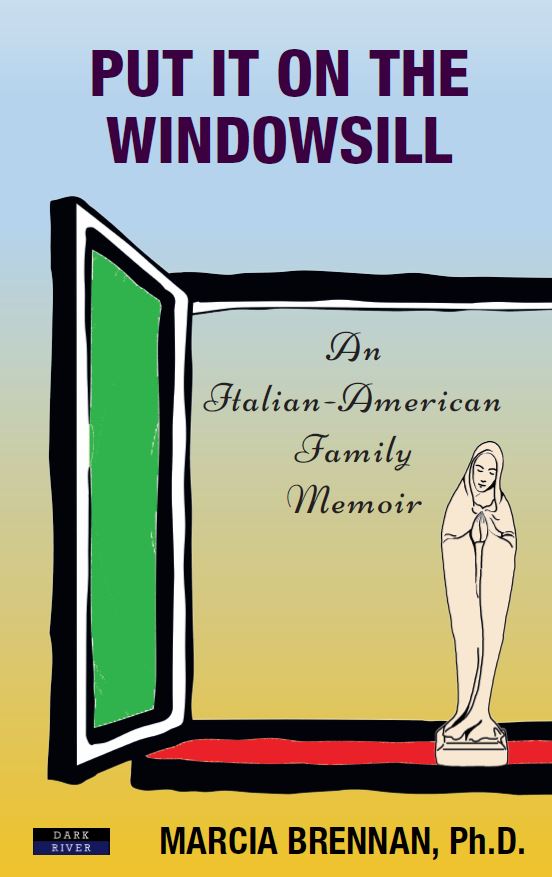An excerpt from:
III: YOU COULD EAT OFF THE FLOOR: HOW MY GRANDPARENTS CREATED A WORLD, AND HOW THEY TOOK THAT WORLD WITH THEM, WHEREVER THEY WENT
Unless you somehow had inside access to this culture, you could never fully know what it meant to live in a twentieth-century, Italian-American home. Many of the people who lived in this world began with almost nothing, and they skillfully created lives they deeply cherished. Homemaking was both an art and a craft, and it was the work of a lifetime. Such worlds no longer exist in quite these forms today. You really had to have been there to witness the vast amounts of time and effort, artistry and care, that went into the creation and maintenance of these remarkable worlds.
No Sporcaccione!
First and foremost, everything was incredibly clean. And I don’t just mean clean – I mean sparkling and immaculate. Imagine the most spotless environment you’ve ever been in, and then triple it. Envision scenes of gleaming white enamel cooking surfaces, highly polished woodwork, flawless expanses of smooth neutral carpeting, crisply starched yet still incredibly soft linens, and endless rows of colorful flowered dishes all neatly stacked on pantry shelves, where light beams in through transparent glass windowpanes. These spaces were magical, and growing up in such a world was a blessing. Yet this blessing also carried an accompanying curse, much like a twin who remained a silent partner until she started speaking, and always in Italian.
Let’s begin with some humor. The joke about these houses was that everything was so clean, you could eat off the floor. Not that anyone ever did this, of course. But honestly, you could have. Cooking and food were as sacred as the house itself, and one of the greatest compliments you could ever pay someone was to bring your two hands outward in a wide, sweeping gesture that encompassed the totality of the universe, and emphatically proclaim: You could eat off their floor! This phrase was a blessing, and it was always expressed in English.
In contrast, one of the worst curses you could ever throw at someone (or at their entire family) was to say that they were sporcaccione. Sporcaccione is an extremely interesting word, in part because it knows no boundaries. The term implies someone or something that is not just dirty, but absolutely filthy and completely disgusting.[1] In conversational usage, sporcaccione is an adjective that means to be like a pig – and thus, to be like an animal that poops and eats in the same location in its own little pigpen. Even worse, the animal doesn’t have the sense to know any better. Thus sporcaccione simultaneously connotes a lapse in judgment as well as in hygiene, and it indicates a person who will never fully be trusted. Yet the most interesting aspect of this concept is that, somehow, these extremes were always crystal clear to everyone, and there was no room for ambiguity or argument. In this world, either you were filthy, or you were immaculate. Either you were sporcaccione, or you could eat off the floor. There was no wiggle room for oinking out any sort of appeal or negotiation.
What this meant in practical terms was that, if you were a member of the younger generation, and an extremely busy professional woman, you still did not get a pass. Oh no, the relatives had something else lined up for you. While you were not overtly criticized, during a visit they would simply come into your kitchen and start cleaning things of their own accord. And by this, I don’t mean that they would just help out in a nice friendly way and casually wash some dishes. Oh no – nothing ever began or ended there. Instead, they would put on yellow rubber gloves, whip out a can of oven cleaner, and start scrubbing away like there was no tomorrow. They would do this like it was the most natural thing in the world. And for them, it probably was. No more sporcaccione! By the time the visit was over, you were completely exhausted, but everything was so clean you could eat off the floor. All that cleaning was something like the cleansing of a curse. It was a kind of atonement, like washing away the sins of the spaghetti sauce. Rather than going to church and confessing to the priest, this was a do-it-yourself form of absolution for the sins of domestic omission: Say two Hail Marys, and buy another can of oven cleaner.
Looking back at all of this, a part of me is still wondering: Just what the hell was going on in the kitchen? Yet I’ve also learned to view these things symbolically, and to maintain a sense of humor. Laughter is knowledge, and it’s a powerful tool when maintaining multiple perspectives. If we were to look at this situation metaphorically, the image of “eating off the floor” is an inversion that turns the lowest into the highest, so that a curse becomes a blessing that affirms the sacredness of the home. This insight goes a long way toward explaining why so much time and effort were devoted to doing all that housework. The bottom line is that the home and the family were the material expressions of the life people created together, and this world meant everything, from the very beginning.
*
[1] For the definitions of the Italian words appearing in this book, I have consulted Robert C. Melzi, The Bantam New College Italian & English Dictionary (New York: Bantam Books, 1976).

